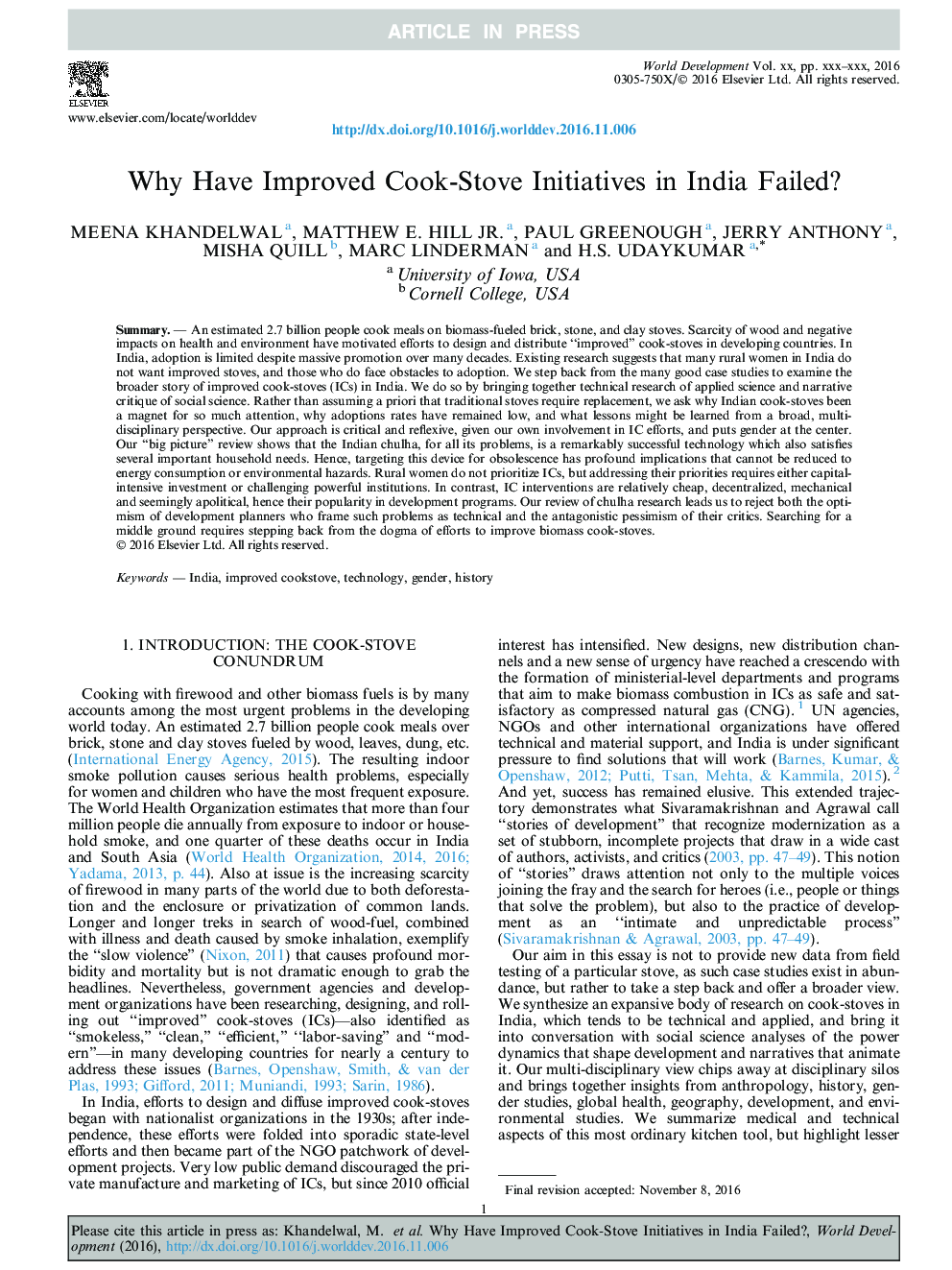| کد مقاله | کد نشریه | سال انتشار | مقاله انگلیسی | نسخه تمام متن |
|---|---|---|---|---|
| 5105022 | 1481126 | 2017 | 15 صفحه PDF | دانلود رایگان |
عنوان انگلیسی مقاله ISI
Why Have Improved Cook-Stove Initiatives in India Failed?
ترجمه فارسی عنوان
چرا ابتکارات کوک بخار در هند بهبود یافته است؟
دانلود مقاله + سفارش ترجمه
دانلود مقاله ISI انگلیسی
رایگان برای ایرانیان
کلمات کلیدی
هند، آشپزی بهتر بهبود یافته است فن آوری، جنسیت، تاریخ،
موضوعات مرتبط
علوم انسانی و اجتماعی
اقتصاد، اقتصادسنجی و امور مالی
اقتصاد و اقتصادسنجی
چکیده انگلیسی
An estimated 2.7 billion people cook meals on biomass-fueled brick, stone, and clay stoves. Scarcity of wood and negative impacts on health and environment have motivated efforts to design and distribute “improved” cook-stoves in developing countries. In India, adoption is limited despite massive promotion over many decades. Existing research suggests that many rural women in India do not want improved stoves, and those who do face obstacles to adoption. We step back from the many good case studies to examine the broader story of improved cook-stoves (ICs) in India. We do so by bringing together technical research of applied science and narrative critique of social science. Rather than assuming a priori that traditional stoves require replacement, we ask why Indian cook-stoves been a magnet for so much attention, why adoptions rates have remained low, and what lessons might be learned from a broad, multi-disciplinary perspective. Our approach is critical and reflexive, given our own involvement in IC efforts, and puts gender at the center. Our “big picture” review shows that the Indian chulha, for all its problems, is a remarkably successful technology which also satisfies several important household needs. Hence, targeting this device for obsolescence has profound implications that cannot be reduced to energy consumption or environmental hazards. Rural women do not prioritize ICs, but addressing their priorities requires either capital-intensive investment or challenging powerful institutions. In contrast, IC interventions are relatively cheap, decentralized, mechanical and seemingly apolitical, hence their popularity in development programs. Our review of chulha research leads us to reject both the optimism of development planners who frame such problems as technical and the antagonistic pessimism of their critics. Searching for a middle ground requires stepping back from the dogma of efforts to improve biomass cook-stoves.
ناشر
Database: Elsevier - ScienceDirect (ساینس دایرکت)
Journal: World Development - Volume 92, April 2017, Pages 13-27
Journal: World Development - Volume 92, April 2017, Pages 13-27
نویسندگان
Meena Khandelwal, Matthew E. Jr., Paul Greenough, Jerry Anthony, Misha Quill, Marc Linderman, H.S. Udaykumar,
